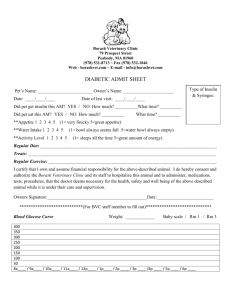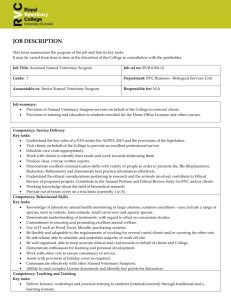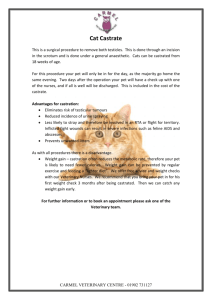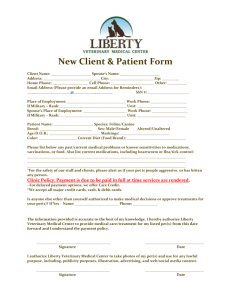digoxin - Ark Veterinary Centre
advertisement
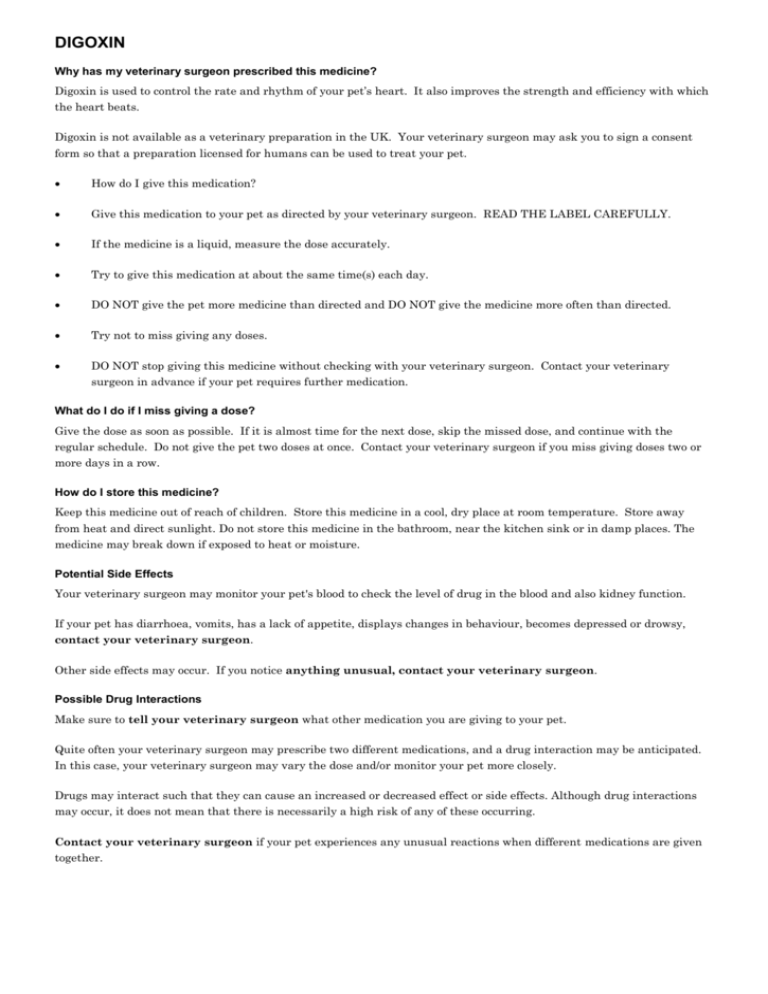
DIGOXIN Why has my veterinary surgeon prescribed this medicine? Digoxin is used to control the rate and rhythm of your pet’s heart. It also improves the strength and efficiency with which the heart beats. Digoxin is not available as a veterinary preparation in the UK. Your veterinary surgeon may ask you to sign a consent form so that a preparation licensed for humans can be used to treat your pet. How do I give this medication? Give this medication to your pet as directed by your veterinary surgeon. READ THE LABEL CAREFULLY. If the medicine is a liquid, measure the dose accurately. Try to give this medication at about the same time(s) each day. DO NOT give the pet more medicine than directed and DO NOT give the medicine more often than directed. Try not to miss giving any doses. DO NOT stop giving this medicine without checking with your veterinary surgeon. Contact your veterinary surgeon in advance if your pet requires further medication. What do I do if I miss giving a dose? Give the dose as soon as possible. If it is almost time for the next dose, skip the missed dose, and continue with the regular schedule. Do not give the pet two doses at once. Contact your veterinary surgeon if you miss giving doses two or more days in a row. How do I store this medicine? Keep this medicine out of reach of children. Store this medicine in a cool, dry place at room temperature. Store away from heat and direct sunlight. Do not store this medicine in the bathroom, near the kitchen sink or in damp places. The medicine may break down if exposed to heat or moisture. Potential Side Effects Your veterinary surgeon may monitor your pet's blood to check the level of drug in the blood and also kidney function. If your pet has diarrhoea, vomits, has a lack of appetite, displays changes in behaviour, becomes depressed or drowsy, contact your veterinary surgeon. Other side effects may occur. If you notice anything unusual, contact your veterinary surgeon. Possible Drug Interactions Make sure to tell your veterinary surgeon what other medication you are giving to your pet. Quite often your veterinary surgeon may prescribe two different medications, and a drug interaction may be anticipated. In this case, your veterinary surgeon may vary the dose and/or monitor your pet more closely. Drugs may interact such that they can cause an increased or decreased effect or side effects. Although drug interactions may occur, it does not mean that there is necessarily a high risk of any of these occurring. Contact your veterinary surgeon if your pet experiences any unusual reactions when different medications are given together. Ark Veterinary Centre


